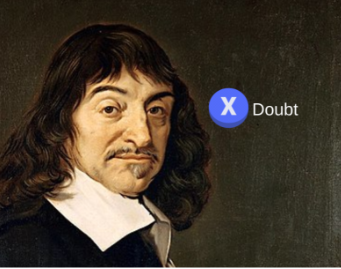Philosophy of the Self

How do you know “who” you are? How do you know “who” your friend is? What does it even mean to be a “who” (and not Cindy Lou Who of Whoville)? The philosophy of the self is arguably one of the most fundamental branches of philosophy. Not only does this branch study identity, or what constitutes something over time, but it also shares aspects with metaphysics, which asks questions like, does the world around me exist or is it a dream?
Have you considered what would happen if you were to occupy another body, like after drinking polyjuice potion from Harry Potter⚡️? Not only would that be really creepy, but it would also likely change how you see the world. This raises many questions about where your identity lies (if there is one at all). If a shoplifter who never got caught grew up to be an entirely different person 15 years later, free from crime, should that person be held accountable for those crimes⚖️? Are they the same person? If you love someone, what guarantees that you’ll love that person in the future? If you had all your memories just from 6th grade wiped, would you be the same person? How stable of an identity would you have if you could only remember events in the last week? The philosophy of the self may take you on a journey of skepticism and spiritual crisis. Try not to freak out, and don’t continue on in this topic if you’re about to take a big test✏️ or ask out your crush😍; you don’t want to be asking “who am I?” on top of “what is the powerhouse of the cell?” But if you’re ready, it’s guaranteed that this topic will captivate your interests and make you a more sophisticated thinker.
Videos
The Paradox of Theseus’s Ship
Carneades
-
 The Paradox of Theseus’s Ship
The Paradox of Theseus’s Ship
-
 Personal Identity
Personal Identity
-
 Crash Course
Crash Course
-
 Wireless Philosophy
Wireless Philosophy
Key Texts
Pop Culture Examples
Want to Know More?
-
Personal Identity
Internet Encyclopedia of Philosophy -
Personal Identity in Memento
PLATO -
What’s So Simple About Personal Identity?
Philosophy Now
Questions to Think About
-
Who am I? What makes me “me”?
-
Can I separate my identity from my ideas?
-
How can other people know me?
-
Is memory required for identity? How?
Key Thinkers
-

René Descartes
-

John Locke
-

David Hume
-

Risieri Frondizi
-

Marya Schechtman
“René Descartes” by pittigliani2005 is licensed with CC BY-NC-ND 2.0. To view a copy of this license, visit https://creativecommons.org/licenses/by-nc-nd/2.0/. https://www.flickr.com/photos/37925259@N00/5832576407
“File:John Locke. Line engraving by G. Vertue, 1738, after Sir G. Wellcome V0003651.jpg” by Wellcome Library, London is licensed with CC BY 4.0. To view a copy of this license, visit https://creativecommons.org/licenses/by/4.0. https://commons.wikimedia.org/w/index.php?curid=36403225
“David Hume” by Martin Beek is licensed with CC0 1.0 To view a copy of this license, visit https://creativecommons.org/publicdomain/zero/1.0/. https://www.flickr.com/photos/66122200@N00/32931731777
“File:Risieri Frondizi 2.jpg” by GelpgimLa22 is licensed with CC BY-SA 4.0. To view a copy of this license, visit https://creativecommons.org/licenses/by-sa/4.0. https://commons.wikimedia.org/w/index.php?curid=56295633
Key Terms
-
- body view
- You are your body. Thoughts and emotions are physical.
-
- continuity view
- You are your memories. As long as you remember the person you were yesterday, your character is stable (chain of memories).
-
- brain view
- You are your brain. Thoughts and emotions are functions of brain processes.
-
- simple view
- You are an immaterial, not physical thing that persists through time, a “soul.”
-
- self-constitution view
- You know who you are by writing a story of yourself.
-
- bundle view
- There is no self; you’re just a bundle of impressions and ideas. This is David Hume’s view.
-
- Frondizi’s view
- You are the process of maintaining a structural unity (integrity) of your memories and experiences. Beliefs and memories can come and go, but the process of maintaining a structure of those memories and beliefs is who you are.
-
- Davion’s view
- Because your commitments change, memories and beliefs (even a structure of them) are not your identity, but the unchanging and unconditional commitment to monitor who you are becoming does not change, which guarantees identity.







